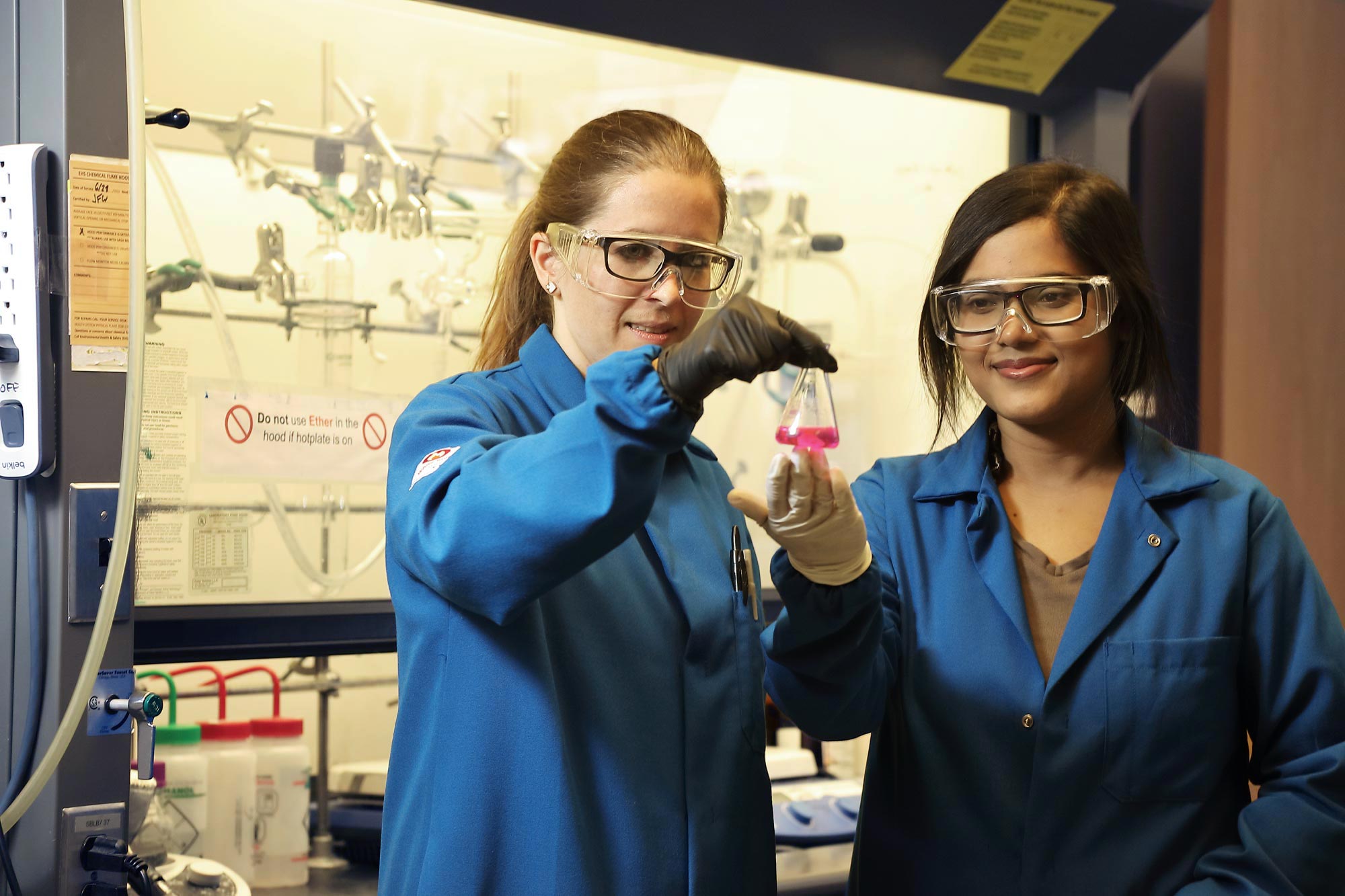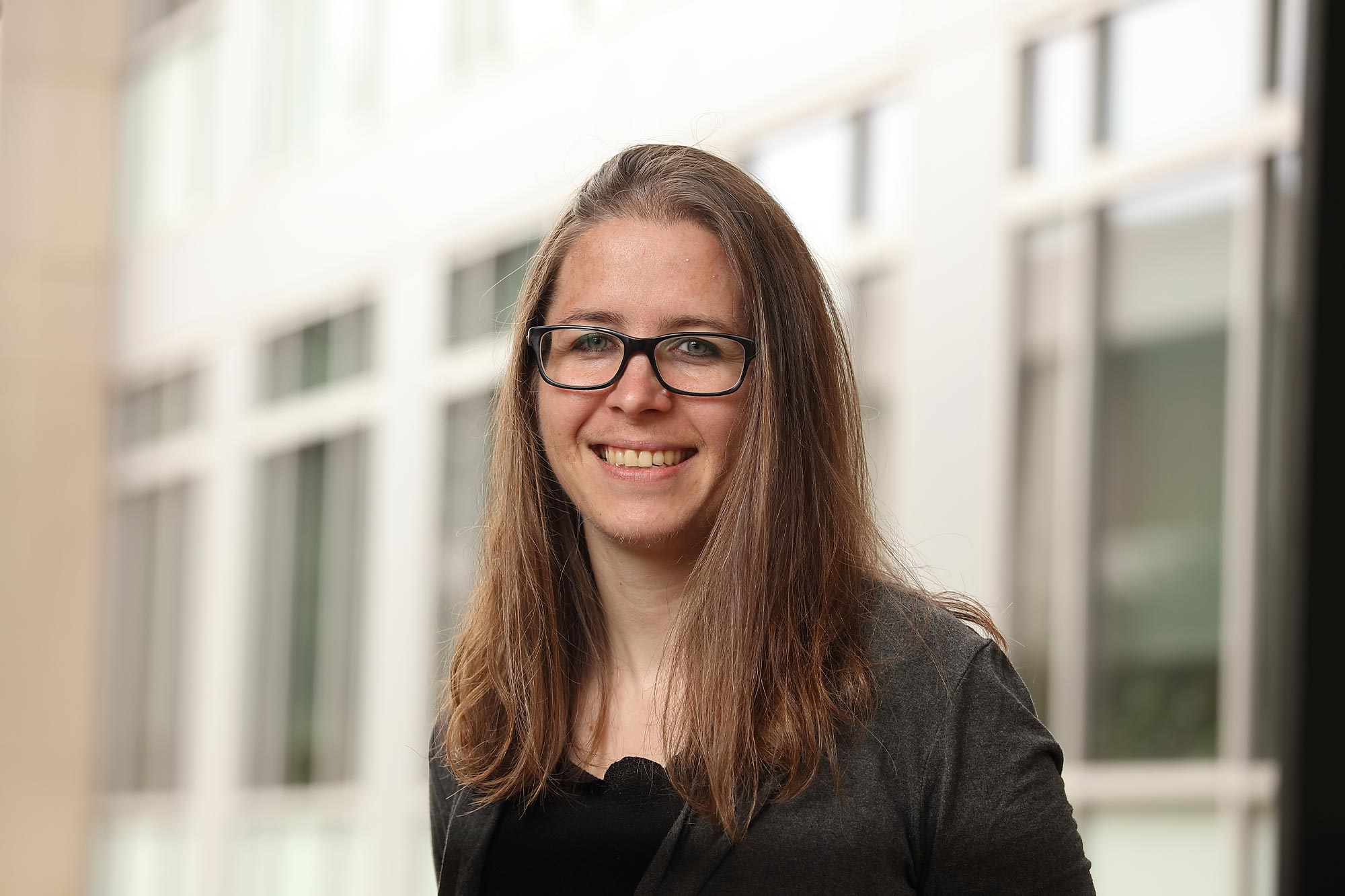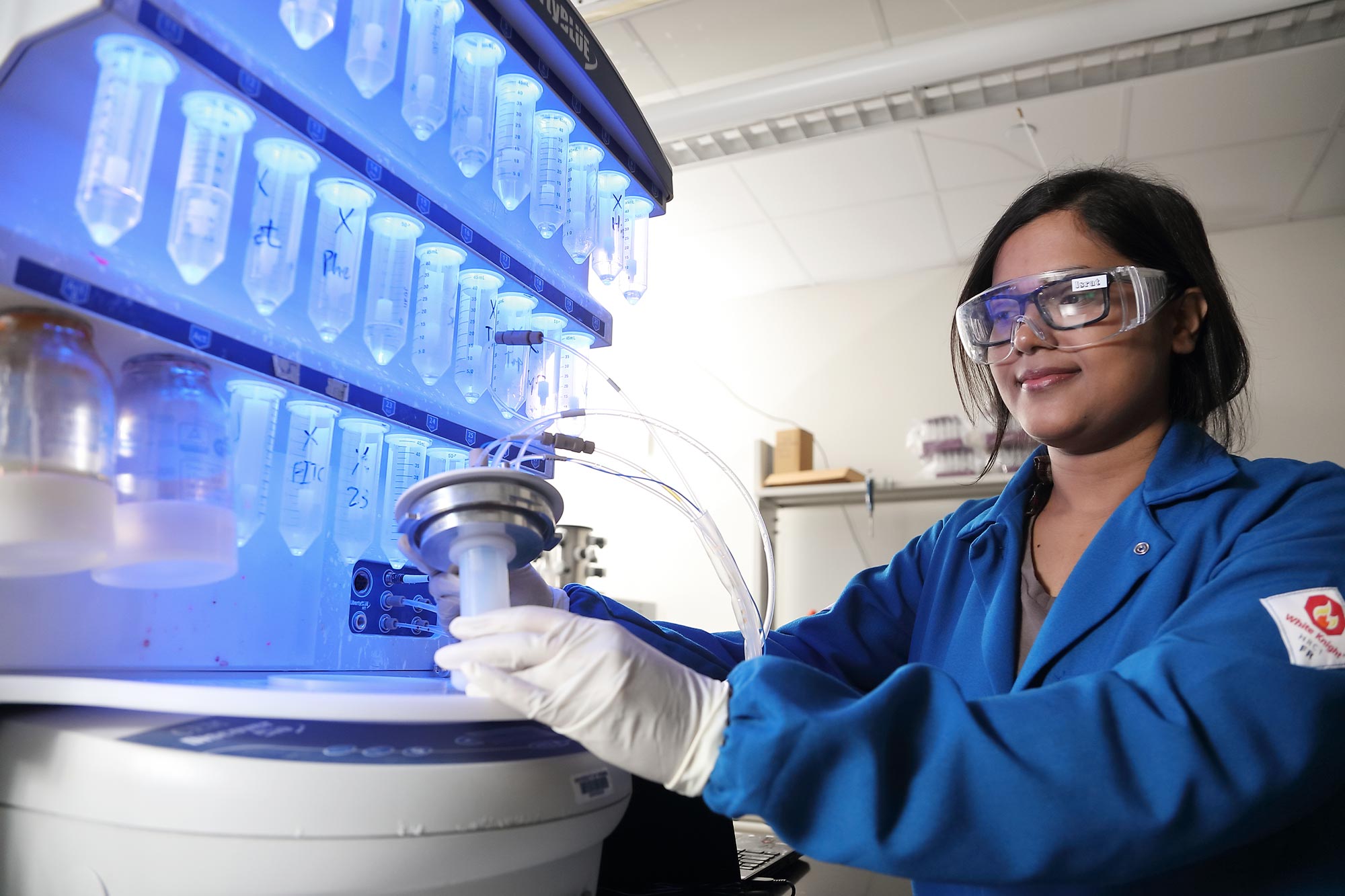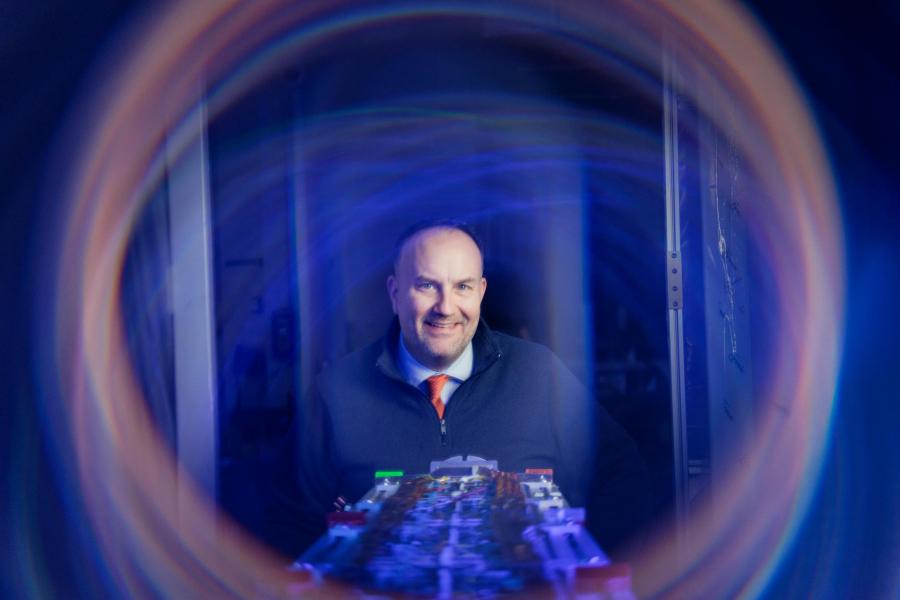Rachel Letteri digs polymers because, in them, she sees so many possibilities.
“Polymers are big molecules that string together many different building blocks and play so many important roles in medicine and engineering,” said Letteri, an assistant professor of chemical engineering at the University of Virginia School of Engineering and Applied Science.
“Big” here is relative. Even the largest molecules, of course, are tiny, invisible to the naked eye. But to a chemical engineer like Letteri, polymers can be quite hefty.
This compiling of single-molecule building blocks into “big” macromolecules designed to do a job – either by nature or by people – is ubiquitous. Polymers are in everything from the foods we eat to plastic grocery bags. Letteri’s lab is designing polymers for use in health care, such as repairing tissue loss from injury or disease.
“If we can build these materials using all the possibilities that the chemistry of big molecules gives us, we can get closer and closer to mimicking natural tissue so we can guide cell growth for therapeutic applications,” Letteri said.
Her research is so promising that the National Science Foundation has granted her a five-year, $564,000 award to see where she can take it. The money is part of the foundation’s prestigious CAREER Award program for early-career faculty, which recognizes the recipients’ potential for leadership in research and education.
Letteri’s materials are made by attaching protein fragments called peptides to the ends of polymers and mixing them together in water to form a hydrogel – a clear, Jell-O-like substance. The peptides are akin to Velcro strips that bind polymers to form the material. By making small adjustments to the chemistry of the peptide Velcro strips, Letteri’s team can design the resulting hydrogel to mimic the physical properties of living tissue.







